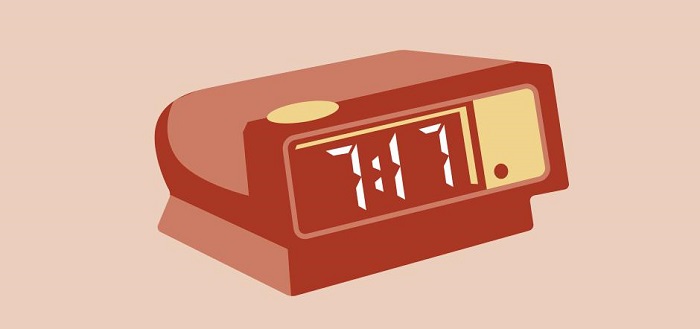While it may not be scientifically possible to expect 24 hours to miraculously transform into 25, what I have done is learned a variety of techniques to help me squeeze more productivity out of my day. This allows me to get more done in the same amount of time, effectively giving me “25-hour days.”
Want to do the same? Here are four of the most effective ways you can squeeze an “extra” hour out of your day and become as productive as possible in the process.
1. Start your mornings on the right foot
Get up earlier, and you’ll have more time to tackle your growing to-do list while your mind is fresh and at its prime. Research has found that people who get up early tend to be more proactive.
Not a morning person? No problem. Set your alarm clock to go off just 15 minutes earlier, and get right out of bed when it goes off. Once you’re used to that, go another 15. Move your wake-up time in these small increments, and soon you’ll have that extra hour in your day.
It isn’t just enough to get out of bed, though. You also want to start your day with the right mindset. Here’s how you can do this (all in under three minutes):
Wake up (when your alarm goes off). If the first thing you do when you wake up is hit “snooze,” you are effectively starting your day off in procrastination mode (“I’ll wake up later”). So get up right when your alarm goes off—even if that means you have to put your clock or phone across the room.
Say something positive (out loud). Every morning, the first thing I say is, “Today is going to be the best day ever”—even on the days when I don’t feel like it’s true. This helps put me in a better state of mind and, I’ve found, leads to more positive and more productive thoughts.
Make your bed (and take pride in it). U.S. Navy admiral William H. McRaven sums this one up best: “If you make your bed every morning, you will have accomplished the first task of the day. It will give you a small sense of pride, and it will encourage you to do another task—and another and another.”
Read more: Be Productive: How I Became a Morning Person
2. Identify your MIT
Ever spend an entire day feeling unbelievably busy…yet when you look back on it before you go to sleep, you feel like you didn’t actually “do” anything? Yep, me too.
There’s a big difference between doing things that will move you forward and doing things that just move you from side to side, never really letting you get ahead. Identifying and then working to accomplish your most important task (your MIT) is one way to make sure you achieve one thing—and ideally, one key task that will give you a sense of accomplishment and/or make the rest of your tasks for the day easier.
3. Become proactive, not reactive
So many of our days are spent in reactive mode. We’re constantly responding to emails, sitting in pointless meetings and dealing with other people’s “emergencies.” All of this makes it more and more difficult to actually get anything accomplished.
That’s where the Pomodoro Technique comes in. If you’re not familiar with this system, don’t worry, it’s super-simple. All you need is a timer and a desire to be more productive each day.
Pick a task (hopefully it’s your most important task). Set your timer for 25 minutes. Work on that task until the timer rings—don’t do anything else during that time—and then take a five-minute break.
You can repeat this process as many times as you’d like, but even doing just one “Pomodoro” will dramatically improve your productivity because it helps you stay focused on the task at hand (and has the added bonus of giving you breaks so you don’t feel exhausted and burnt out).
By leveraging this technique, I’ve learned how to do the amount of work that used to take me 40 hours in just 16.7…effectively giving me several “extra” hours each week.
4. Minimize distractions
The average office worker loses 2.1 hours per day due to distractions—so it’s no wonder you don’t feel like you’re getting anything done.
It’s virtually impossible to eliminate all distractions, which is why it’s so important to limit them as much as possible. This means silencing your cellphone when you’re working on a task, turning off automatic notifications from your email and social media pages so you’re not tempted to check them and working someplace quiet so you can concentrate.
The more of these types of distractions you can distance yourself from, the more time you’ll have in your day to actually get things done.
More about:
















































